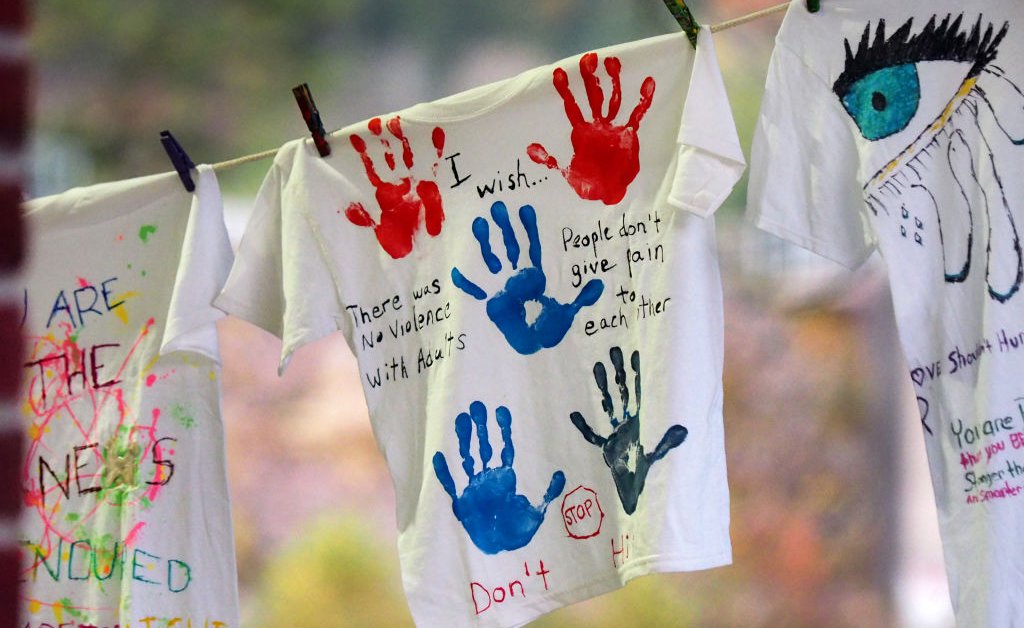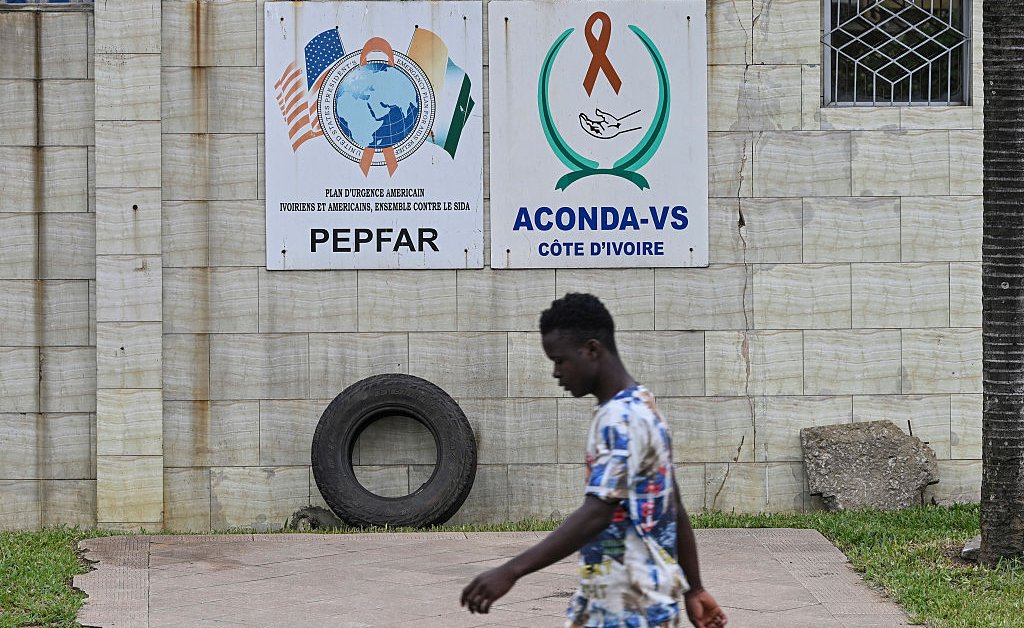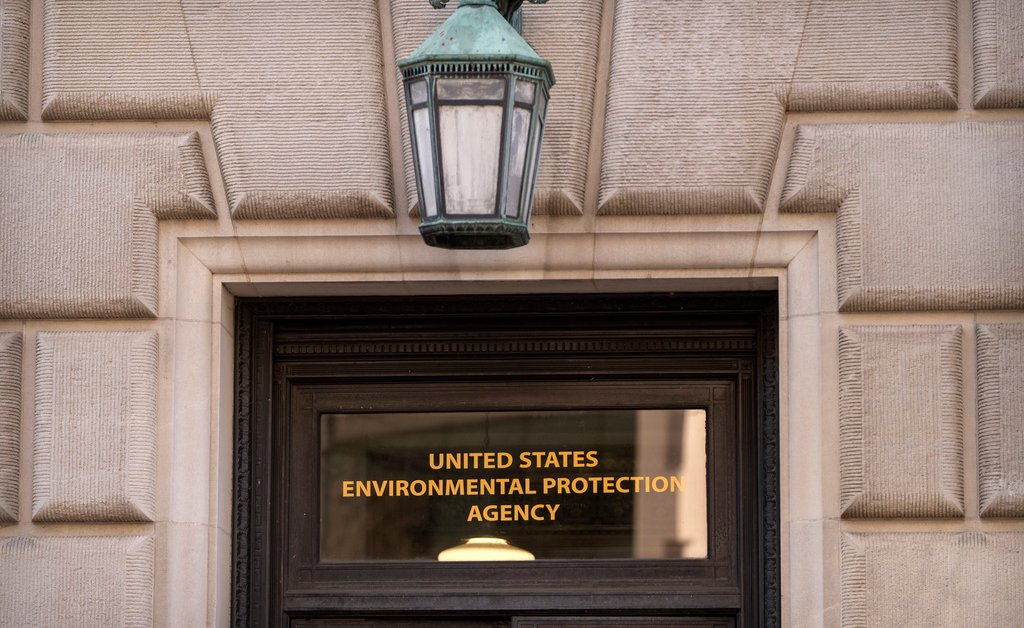Domestic violence survivors and their families frequently ask Amanda Cost for financial assistance, spots in a shelter, or other help. Lately, Cost and her staff have gotten used to turning down these requests.
“As we continue to see reductions in funding, we have to say no,” says Cost, executive director of Partners for Peace Maine, one of the oldest domestic violence organizations in the country.
Partners for Peace is one of hundreds of domestic violence support groups that have endured dramatic budget cuts over the past few years, impairing their ability to operate. Their predicament will likely become even worse at the end of this year: President Donald Trump’s 2026 budget, which kicks in on Oct. 1, 2025, proposes $200 million worth of cuts to grant programs in the Office of Violence Against Women, one of the main sources of funding for many on-the-ground organizations.
The funding reductions have already forced groups to shut down shelters for victims of domestic violence, curtail the hours of hotlines and other emergency help, scrap long-running prevention and community programs, and lay off workers or keep staffing levels low through attrition. These organizations are already operating without enough money or staff, says Terri Poore, policy director of the National Alliance to End Sexual Violence, a D.C. nonprofit that represents 1,000 community-based rape crisis centers.
“Many of these programs operate on a shoestring budget with little in reserve,” she says. “They’re small employers in their communities, and not knowing whether they’ll be able to rely on these grants has meant some tough decisions, which has a huge impact on their ability to provide services.”
Read More: The Surprising Reason Rural Hospitals Are Closing
One of the biggest reasons for the cuts is that the Crime Victims Fund—one of the main funding sources for programs like these—is dwindling. The fund was created by the 1984 Victims of Crime Act, or VOCA, and had for years been relatively stable. It gets VOCA money entirely through fines and penalties collected through federal criminal cases concerning corporate fraud, white-collar crimes, and other federal offenses. But because the Justice Department has reached more settlements in white-collar criminal cases in recent years, that funding is lagging behind what it used to be, Poore says. In 2024, for example, VOCA funding fell 40%, she says.
Advocates for victims of domestic and sexual violence used to have to beg the government to release more funds from VOCA, she says, because there was a lot of money sitting there. They don’t have that problem anymore.
Read More: Why So Many Seniors Can’t Afford Long-Term Care
The many layoffs at the U.S. Centers for Disease Control and Prevention (CDC) earlier in 2025 also impacted domestic violence groups because they cut key staffers in the National Center for Injury Prevention and Control, including those overseeing programs like Domestic Violence Prevention Enhancement and Leadership Through Alliances (DELTA) and Rape Prevention and Education (RPE) programs. The president’s 2026 budget proposes combining the funding of those programs, which currently receive $7.5 million and $61.75 million annually, and significantly reducing it to just $38 million annually for both.
“What we know is that there is a perfect storm in the funding world where a lot of COVID funds have dried up; we’ve experienced cuts from VOCA, and there’s just a flat-out fear of what the new budget may bring,” says Stephanie Love-Patterson, president and CEO of the National Network to End Domestic Violence.
The CDC layoffs mean that domestic violence groups no longer have anyone overseeing their programs at the federal level, says Kathleen Lockwood, policy director of the North Carolina Coalition Against Domestic Violence, one affected program. That means less coordination between state coalitions and domestic violence prevention programs in the community, she says.
The NC Coalition Against Domestic Violence has seen a 60% decrease in funding between 2018 and 2024 because of decreased VOCA funding, she says, at a time when demand for services is increasing. The group served 75% more victims in 2023 than it did in 2018, Lockwood says, even while funding fell.
“Right now, we are working on trying to create something sustainable on what’s left,” she says.
Read More: Abortion Vans Worsen Violence in Relationships, Study Finds
Wisconsin saw its VOCA funding fall to just $13 million in 2024 from $44 million in 2019, which has caused big disruptions in domestic violence organizations across the state, says Monique Minkens, executive director of End Domestic Abuse Wisconsin, a statewide coalition that helps support domestic violence organizations. Programs that used to get $1 million in federal grants now just get $250,000. One of the programs’ partners lost 9 staff members because of the cuts; another closed its shelter. Yet another curtailed the hours of its crisis hotline. “I think about how we are usually the last resort when people call,” says Minkens. “It’s helpful not to receive a recording.”
Minkens worries that these cuts are coming as an economic downturn looms, which often makes situations worse for victims of domestic violence because of financial stresses. “This is life or death,” she says. “People are going to die.”
The VOCA reductions and other cuts have also affected the SANE Program at the Crisis Center in Birmingham, Ala. The SANE program helps nurses perform sexual assault nurse exams for people who have been sexually assaulted; it’s important for those nurses to be available 24/7, no matter the time of year, says Angela Trimm, the SANE coordinator for the Crisis Center. Yet the program’s funding was cut 22% earlier this year, and Trimm said she recently learned that her funding was going to be cut again between 10-25%.
When other centers or organizations for victims of sexual assault close, the SANE program’s workload increases, Trimm says. “We’re dealing with an increased client load and decreased funding,” she says.
Staffing reductions are also putting pressure on remaining workers, who handle mentally and emotionally challenging tasks every day. Some leave after getting burned out, and organizations have difficulty recruiting trained professionals willing to do the work for low pay and long hours. Many people who work in domestic violence support organizations are survivors themselves.
Read More: Abortion Bans Worsen Violence in Relationships, Study Finds
“There is a tremendous amount of absorbing trauma, of bearing direct witness to suffering and danger, but they can’t do that five days a week and be on call at night too,” says Francine Garland Stark, executive director of the Maine Coalition to End Domestic Violence.
Advocates say that the federal government needs to figure out a new way to fund these important organizations, because VOCA funding is not sustainable. Many domestic violence support programs don’t receive any state funding and rely on federal funding, which is a difficult position to be in right now because of sudden cuts and budget uncertainty. Some groups support the Crime Victims Fund Stabilization Act, which was introduced in the House in 2024 and which would redirect money from the False Claims Act, which allows the government to sue people who have defrauded it, into the Crime Victims Fund through 2029.
“Imagine you have a woman, and she has a small window of opportunity where it feels like this is the right time for me to leave; she reaches out for the hotline, and there’s no staff there,” says Love-Patterson, of the National Network to End Domestic Violence. “She’s going to stay; she’s going to get discouraged, and the unfortunate reality is that she and her children are going to continue to be harmed.”
In Maine, Amanda Cost has held positions open because of looming cuts. When VOCA funds disappeared in 2024, the state of Maine put up its own resources to replace them, she says, but she knows that can’t happen forever. She’s been combining positions and asking staff to do more with less, ending some programs like support groups for survivors.
As she restricts funding and pares down programs, she feels like she’s seeing the same thing happen in the community around her: rural hospitals anticipate cuts, law enforcement can’t find enough officers, and public schools try to cobble together money to keep programs running.
“So many of the systems that we rely on every day are tapped and strained and stressed,” she says. “It feels like every place around us is struggling.”








